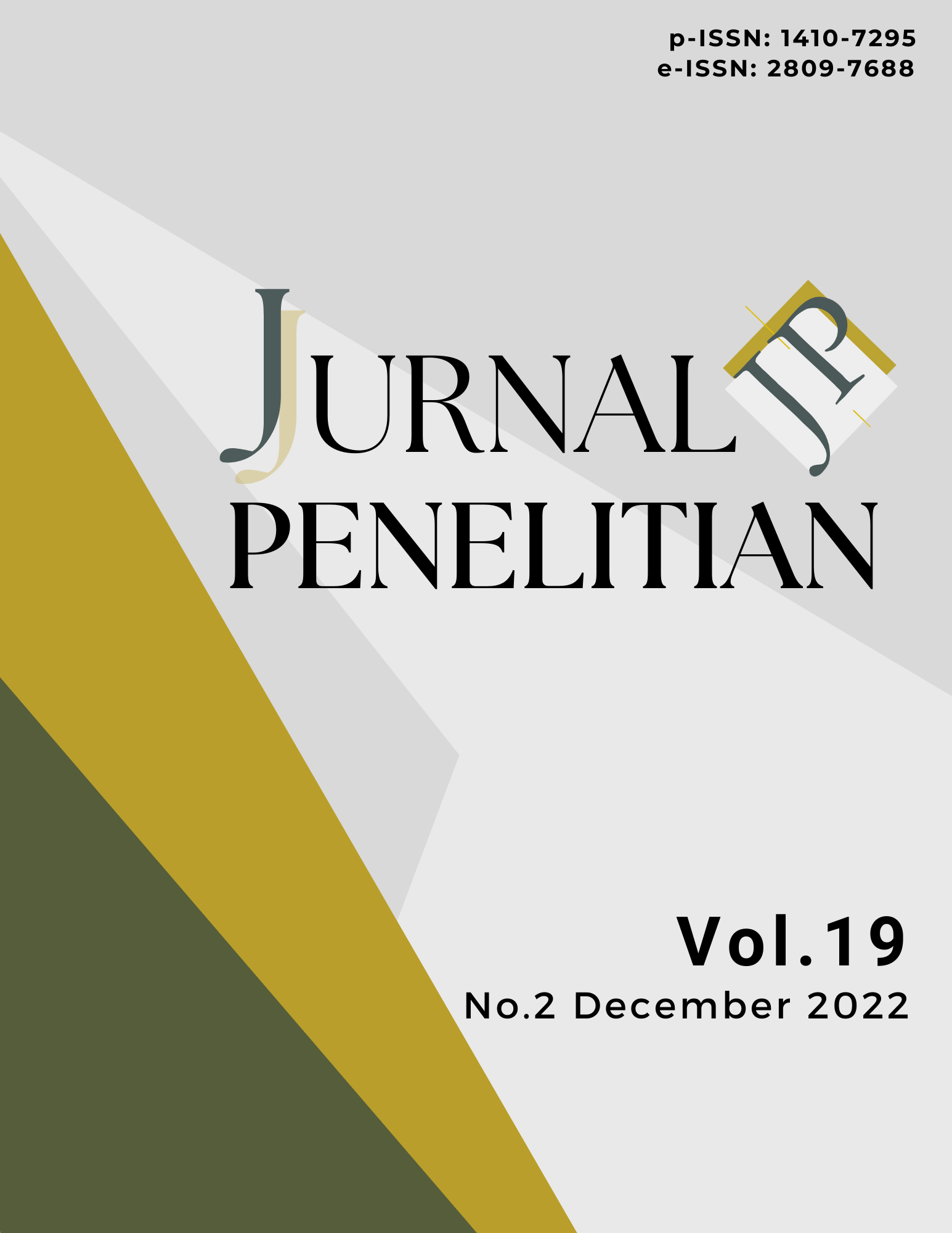Does capital adequacy ratio matter during the Covid-19 outbreak? Evidence on state-owned banks in Indonesia
DOI:
https://doi.org/10.26905/jp.v19i2.9296Keywords:
Capital adequacy ratio, Covid-19, Lending, Non-performing loansAbstract
The Covid-19 epidemic has led to significant transformations in the financial performance of Indonesia's banking sector. Weak economic indicators have resulted in reduced bank capital due to inadequate working capital loans. This study aims to investigate alterations in the capital adequacy ratio (CAR) of Indonesia's state-owned banks during the Covid-19 pandemic. The dataset is derived from the quarterly financial reports of state-owned banks spanning the period 2020-2021. Our findings establish a relationship between bank lending, non-performing loans (NPLs), and CAR. Under the prevailing circumstances, a considerable decline in credit and a noteworthy upsurge in NPLs emerged starting from the third quarter of 2020, with a slight increase persisting into the third quarter of 2021. In contrast, the capital adequacy ratio exhibits a tendency towards stability, attributed to governmental reinforcement of bank capital. We also prove that bank lending has a positive impact on CAR, whereas NPLs have a negative impact on CAR. The research underscores the state-owned banks' ability to consistently and securely maintain the CAR, further emphasizing that this prudent safeguarding mechanism ensures a continuous capital enhancement in conjunction with lending growth, all the while upholding the regulatory norms of the banking industry.
Downloads
References
Astreanto, R., & Riyadi, S. (2017). Faktor-faktor yang mempengaruhi capital adequacy ratio pada bank listing di BEI periode 2010-2014. Jurnal Riset Perbankan, Manajemen, dan Akuntansi, 1(2), 90. https://doi.org/10.56174/jrpma.v1i2.17
Auer, R., Matyunina, A., & Ongena, S. (2022). The countercyclical capital buffer and the composition of bank lending. Journal of Financial Intermediation, 52, 100965. https://doi.org/10.1016/j.jfi.2022.100965
Bartik, A. W., Bertrand, M., Cullen, Z., Glaeser, E. L., Luca, M., & Stanton, C. (2020). The impact of COVID-19 on small business outcomes and expectations. Proceedings of the national academy of sciences, 117(30), 17656-17666.
Barua, B., & Barua, S. (2020). COVID-19 implications for banks: evidence from an emerging economy. SN Business & Economics, 1(1). https://doi.org/10.1007/s43546-020-00013-w
Benes, J., & Kumhof, M. (2015). Risky bank lending and countercyclical capital buffers. Journal of Economic Dynamics and Control, 58, 58–80. https://doi.org/10.1016/j.jedc.2015.06.005
Bhoka, A. H., Yuniarti, S., & Burhan, M. (2021). Penyaluran kredit dan tingkat likuiditas: bukti empiris pada bank umum di Indonesia. Jurnal Manajemen dan Kewirausahaan, 9(1), 138. https://doi.org/10.26905/jmdk.v9i1.5530
Bukian, N. M. W. P., & Sudiartha, G. M. (2016). Pengaruh kualitas aset, likuiditas, rentabilitas dan efisiensi operasional terhadap rasio kecukupan modal. E-Jurnal Manajemen Unud, 5(2), 1189-1221.
Büyükşalvarci, A. (2011). Determinants of capital adequacy ratio in Turkish Banks: A panel data analysis. African Journal of Business Management, 5(27). https://doi.org/10.5897/ajbm11.1957
Ҫolak, G., & Öztekin, Ö. (2021). The impact of COVID-19 pandemic on bank lending around the world. Journal of Banking & Finance, 133, 106207. https://doi.org/10.1016/j.jbankfin.2021.106207
Institute for Monetary and Financial Research, H. K. (2022). The effects of COVID-19 support measures on bank lending: Lessons from the release of the Countercyclical Capital Buffer and Loan Guarantee Schemes in Hong Kong. SSRN Electronic Journal. https://doi.org/10.2139/ssrn.4310263
Korzeb, Z., & Niedziółka, P. (2020). Resistance of commercial banks to the crisis caused by the COVID-19 pandemic: the case of Poland. Equilibrium, 15(2), 205–234. https://doi.org/10.24136/eq.2020.010
Nugroho, M., Arif, D., & Halik, A. (2021). The effect of loan-loss provision, non-performing loans and third-party fund on capital adequacy ratio. Accounting, 943–950. https://doi.org/10.5267/j.ac.2021.1.013
Özgür, E. (2021). Panel data analysis to identify the factors affecting capital adequacy ratio of deposit banks. Journal of Global Economy, 17(2), 77–89. https://doi.org/10.1956/jge.v17i2.622
Park, C.-Y., & Shin, K. (2021). COVID-19, nonperforming loans, and cross-border bank lending. Journal of Banking & Finance, 133, 106233. https://doi.org/10.1016/j.jbankfin.2021.106233
Rianto, L., & Salim, S. (2020). Pengaruh ROA, LDR, NIM, dan NPL terhadap Capital Adequacy Ratio (CAR). Jurnal Paradigma Akuntansi, 2(3), 1114. https://doi.org/10.24912/jpa.v2i3.9537
Sukirno, S. (2020). Kredit bermasalah sebagai pemoderasi pengaruh tingkat penyaluran kredit terhadap profitabilitas. JMK (Jurnal Manajemen dan Kewirausahaan), 5(1), 52. https://doi.org/10.32503/jmk.v5i1.749
Taruna, H. (2021). Tantangan penyaluran kredit, NPL dan CAR perbankan Indonesia pada masa pandemi Covid-19. Jurnal Akrab Juara, 6(3), 175-192.
Thoa, P. T. X. & Anh, N. N. (2017). The determinants of capital adequacy ratio: the case of the Vietnamese banking system in the period 2011-2015. VNU Journal of Science: Economics and Business, 33(2), 51-60.
Tionarto, A., Goh, T. S., & Elidawati, E. (2022). Analisis faktor-faktor yang mempengaruhi capital adequacy ratio pada perusahaan perbankan. Bongaya Journal of Research in Accounting (BJRA), 5(2), 51–60. https://doi.org/10.37888/bjra.v5i2.366
Tumipa, W. S., Mangantar, M., & Untu, V. N. (2022). Faktor-faktor yang mempengaruhi capital adequacy ratio bank di Bursa Efek Indonesia Periode 2013-2017. Jurnal EMBA : Jurnal Riset Ekonomi, Manajemen, Bisnis Dan Akuntansi, 10(2), 722. https://doi.org/10.35794/emba.v10i2.40689
Yuliani, K. P., Werastuti, D. N. S., & Sujana, E. (2015). Pengaruh loan to deposit ratio (LDR), non-performing loan (NPL), return on asset (ROA) dan beban operasional terhadap pendapatan operasional (BOPO) terhadap capital adequacy ratio (CAR). e- Journal AK S1 Universitas Pendidikan Ganesha, 3(1).
Downloads
Published
How to Cite
Issue
Section
License
Authors who publish in this journal agree to the following terms:
- Copyright of the published articles will be transferred to the journal as the publisher of the manuscripts. Therefore, the author confirms that the journal has managed the copyright.
- Publisher of Abdimas: Jurnal Pengabdian Masyarakat Universitas Merdeka Malang is University of Merdeka Malang.
- The copyright follows the Creative Commons Attribution-ShareAlike License (CC BY SA): This license allows to share, copy, and redistribute the material in any medium or format, adapt, remix, transform, and build upon the material, for any purpose, even commercially.


